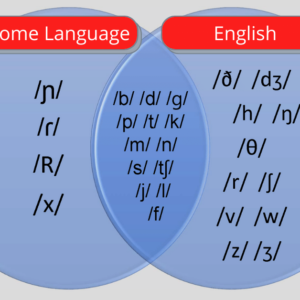Working with Interpreters
$37.00

Course Type: Video – 2 1/2 hours
ASHA Course Code: Diversity, Equity, and Inclusion in Education, Training, Service Delivery, Public Policy – 7030
Working with interpreters is becoming more common, and is often a necessity, when providing services to culturally and linguistically diverse populations. Gain important skills needed to train qualified interpreters. Skills include appropriate vocabulary and cultural considerations necessary for effective communication with parents regarding disabilities, services, and rights.
| Population | Early Childhood, School Age |
|---|---|
| Topics | Diversity, Equity, & Inclusion (DEI), SLP Professional |
| Duration | 2.5 hours |
| Credit | .25 Continuing Education Units |
| Format | Video |
Financial Disclosure: Ellen Kester, Ph.D., CCC-SLP. Dr. Ellen Kester is the owner of Bilinguistics and receives a salary. Bilinguistics receives royalty payments for online courses.
Non-Financial Disclosure: Ellen Kester does not have any non-financial relationships to disclose.
Financial Disclosure: Phuong Lien Palafox, M.S., CCC-SLP was an employee of Bilinguistics. Bilinguistics receives royalty payments for online courses.
Non-Financial Disclosure: Phuong Lien Palafox does not have any non-financial relationships to disclose.
Many professionals are having to evaluate and treat children from multicultural backgrounds and communicate with parents who do not speak English. Because of this, the use of interpreters is becoming a more common occurrence. Cultural differences and language nuances can unintentionally affect how a message is transferred from one language to another causing confusion and misunderstandings, and thus, frustration for all. The ability to simply speak a language is not sufficient (Langdon and Cheng, 2002). As case managers, it is our responsibility to inform parents of evaluation processes, evaluation results, rationales for services provided, and the parents’ and child’s rights. In addition, cultural differences and inconsistencies between languages can affect speech and language assessments and treatment.
Therefore, it is important to be aware that complexities and differences exist in other languages in order to successfully communicate ideas from one language to another and to properly evaluate a student.
Many cultures interpret disabilities differently which may influence how they feel about having a child with an impairment, how they understand the impairment, as well as their idea of the cause of their child’s impairment (Goldstein 2000). Many messages cannot be translated directly, so they may lose meaning from one language to another. Competence of a language and/or culture comes with further exposure and experience; this session will explore some of these differences while suggesting appropriate and respectful vocabulary in Spanish that will help decrease misunderstandings and frustration during interaction with parents who do not have a high proficiency in English or mainstream culture. It is not possible to know every dialectal difference of a language, including your own language; however, it is possible to be cognizant of possible verbal, nonverbal, cultural and contextual aspects that can affect the success of an interpretation.
This course will also provide a “cheat sheet” for professionals to review and give to Spanish-speaking interpreters in order to highlight relevant technical terms before an IEP/ARD meeting. Interpreters will need to be able to explain these specific terms in a manner that can be understood by parents who may be unfamiliar with special education services. A resource containing common IEP scripts in Spanish for initial, annual, revision and dismissal ARD meetings is included in this presentation. Also included are verbiage for explaining common disabilities and speech and language impairments as well as vocabulary for explaining speech services and goals. The purpose of providing these terms is for the SLP to review anticipated terminology with the interpreter before IEP meetings and to get feedback from the interpreter about potential cultural conflicts.
Participants will:
Describe procedures for working and collaborating with interpreters during speech and language assessment, treatment and speaking with parents in ARD/IEP meetings.
Describe cultural issues when working with students and families from other cultures, with emphasis on the bilingual Spanish-English population
Use or inform interpreters of appropriate vocabulary and scripts in Spanish that are culturally sensitive to explain the ARD/IEP paperwork and processes to parents
Time-Ordered Agenda:
05 minutes: Introduction
10 minutes: The Need for Interpreters
30 minutes: Selecting Evaluation Personnel
30 minutes: Linguistic Considerations
30 minutes: Cultural Considerations
10 minutes: Knowledge and skills of interpreters
30 minutes: The interpreting process
05 minutes: Summary
Need CEUs?

 Share
Share
 Tweet
Tweet
 LinkedIn
LinkedIn
 Pin
Pin
 Email
Email




